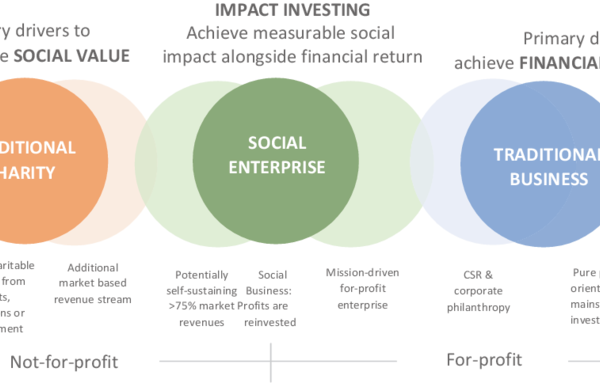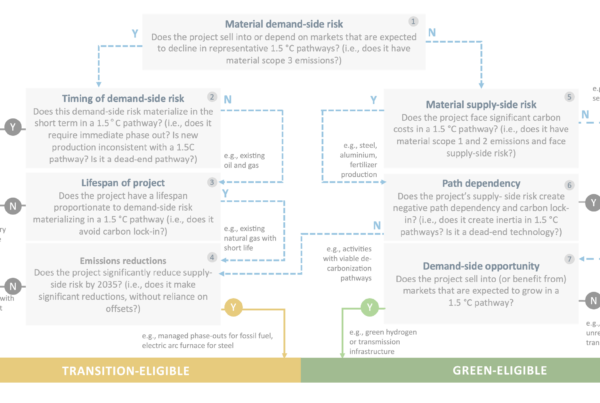Source: Tom Dawkins, Co-founder and CEO of StartSomeGood
Social enterprise is an idea whose time has come. All around us we are seeing growing demand for purpose-led products and brands, not only from consumers but workers and even investors.
There’s never been a better time to start a social enterprise, and the world has never needed your ideas and energy more, if we’re to achieve a more equal and sustainable future.
But let’s not mince words: starting a social enterprise is hard.
I know. As the CEO and founder of StartSomeGood, a crowdfunding platform and education provider for social entrepreneurs, I see people attempt to launch their enterprise every day, full of optimism, hope and good intentions. But these things alone are not enough.
You also need incredible clarity into your impact and business model, your specific target market, story and go-to-market strategy. You need a great product and a great pitch. You need a great team and a supportive community around you.
That’s why I’m thrilled to curate and host the Australia Catholic University Co-Lab Social Enterprise Series, a free eight-week online course which will walk you through the key components of building an enterprise that has a positive social impact.
Why should you attend this program?
So you can avoid the incredible common and consistent reasons why many social enterprises fail to build that community, gain momentum or reach sustainability.
Here are the top five reasons I see social enterprises fail, which the Social Enterprise Series will equip you to avoid:
1. They don’t solve the right problem
A social entrepreneur should be in love with the challenge they want to solve; not the particular solution they have come up with. Challenges/missions should be held tightly — this is our north star — but proposed solutions and products should be held lightly. Every idea is a hypothesis to be tested. Your job is to turn your hypothesis into data into insight.
This is why understanding the ecosystem you work in is so important. Only by mapping the issue can you begun to understand the complexity of any real social challenge, and be able to identify the best potential places to offer an alternative to the status quo.
We cover Issue mapping and Solving the Right Problem in the second Social Enterprise Session happening today!
2. They can’t describe their impact model
You know you’re doing an important thing, but how well can you convince others?
A key skill for every founder is to be able to simply describe their value proposition, and for a social enterprise this means describing how you make a positive impact on the world through business.
In the first Social Enterprise Session last week, “The Change You Seek”, we explored the different genres of social enterprise impact models, embedded and redistributive, and the importance of being able to describe how you create impact — your “theory of change” — in a simple, intuitive and compelling way in order to inspire people to join you on your mission.
Often, however, there’s a gap, leaving you to try to imagine how their model gets from initial action to ultimate impact which reminds me of the Gnomes profit plan from South Park.
Step 1: Collect underpants (insert your social enterprise activity here).
Step 2: ?
Step 3: Profit! (Or social change!)
When the steps aren’t logical or clear, people respond with cynicism or confusion, and are unlikely to back you.
3. They haven’t created something people are willing to pay for
Just because a product is “good” doesn’t mean people will pay for it. You have to solve a problem people actually experience and are motivated to solve.
A danger some purpose-driven entrepreneurs can fall into is solving problems for other people. Too often this turns out to be something that they think someone should do, not what that person wants to do themselves.
The best way to avoid this is to design it with the customers you hope to serve, an approach called Human-centred design, then to run tests and experiments until you land on a robust business model.
While profit might not be what you’re primarily in it for, it’s only by getting the basics right, ie. delivering a product or service that someone is willing to pay more for that it costs you to deliver, that you can create a long-term platform for impact.
This is covered in Social Enterprise Session 3, “Ideation for impact: Introduction to human-centred design, purposeful prototyping and pilots”, and Session 4, “Designing your business: Business modelling and value proposition design.”
4. They haven’t defined their target market — ie. “it’s for everyone”
There’s an admirable but dangerous tendency for changemakers to think very big. We tend to think universally, in terms of rights: clean water, good education, fair jobs for EVERYONE. This is a worthy goal of course, but don’t get confused between your goal and your target market.
Your enterprise is not for everyone. Your product is not for everyone.
No matter how noble or useful it is, it won’t be for everyone. And even if it could theoretically be for everyone (and I don’t like monopolies even if they’re social) not everyone is willing to be an early adopter.
Your mission when you’re starting out is to accurately identify your niche and to target it with precision: those who need your product and are willing try something new.
Be very clear on who your product and your story is for, then do the work to get your story to them.
Social Enterprise Session 5 covers “Building your Tribe: Digital marketing essentials and the five stories of social change.”
5. They are expecting to attract impact investment right from the start
There’s a lot of hype and excitement about Impact Investing right now, investors who are looking to earn a financial return while also doing good by people and planet. And this is an exciting idea! But the reality is there is almost no “impact angel” money available, impact-focused investors willing to take an early risk on a promising idea.
In fact, the vast majority, over 90%, of impact investing in Australia is in property and renewable power generation, relatively mature and lower-risk industries.
If you’re working on an impact startup, no matter how innovative and compelling it is, don’t expect to raise impact investment from the start. Instead, focus on building up your community of supporters, including early-adopter customers, great advisors and a talented founding team. Once you’ve validated a few of your assumptions you’ll be a much stronger position to pitch for investment.
This is why for many social enterprises their first funds are from either a small group of believers or early-adopter customers. Cultivating these is a better use of your time initially than worrying about impact investors.
Social Enterprise Session 7 covers “Finding your ‘first money.’ Understanding investment, philanthropy, and sales.”
6. BONUS reason: They’re trying to do a hard thing
At the end of the day, social enterprise is hard because it’s hard.
Whereas a traditional business might only care about the bottom line, a social enterprise must equally value its triple (quadruple?) bottom line, only these bottom lines aren’t as easy to measure or report as profit and loss.
Traditional business might be hard work and long odds, but it’s also simple. Social enterprises must deal with the true complexity of the world, taking responsibility for negative impacts traditionally externalised from the balance sheet and making the necessary investments to ensure they create positive externalities.
But doing hard things is a life well-lived, and when you succeed you will have created something wonderous and needed: a successful business with the values of a community organisation embedded, supporting your vision and your work, sustaining your impact and even building wealth if that’s your thing, long into the future.
The stress and intensity of founding and leading a business, especially in times of rapid change and disruption, and double-so when working with and on behalf of vulnerable people, leads to a lot of burnout. This is why I believe that building community with people who understand is so important, usually other entrepreneurs on a similar journey to you, as well as old friends and great partners.
Now is in fact the perfect time to explore starting your own social enterprise. The winds of change are at our backs as more people look to align their work, investments and consumption with their values.
An emerging movement of entrepreneurs is dedicated to building the businesses of the future that will make that alignment not only possible, but the norm, and you’re invited to be part of it.



